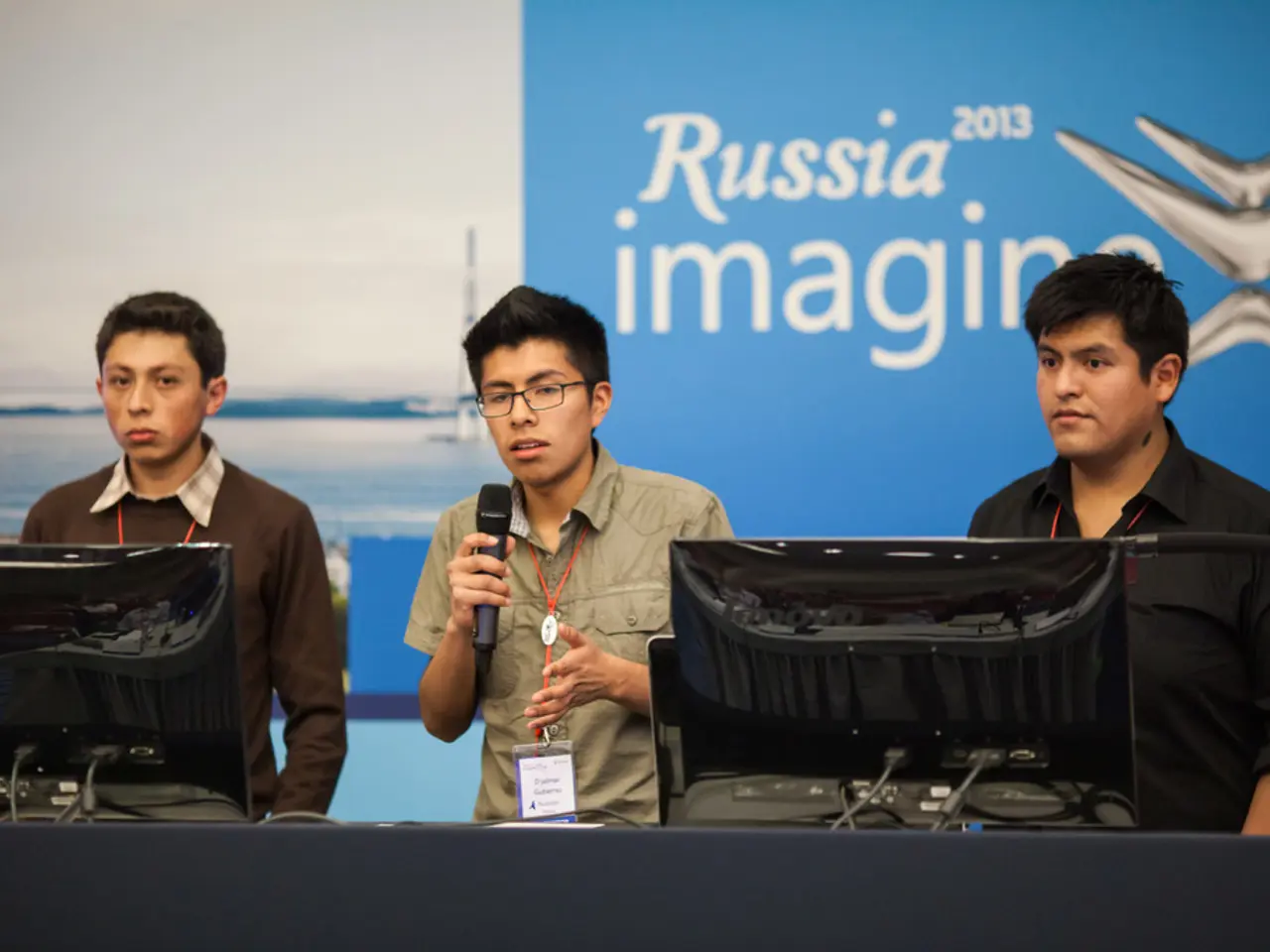Protests, Territorial Claims, and Oil Transportation Infrastructure
In the ongoing conflict between Russia and Ukraine, the status of Russia's mobilization and annexation efforts is marked by persistent military operations and contested territorial control.
Russian forces have made significant advances, with claims that they have seized nearly all of Luhansk Oblast, although border areas remain in dispute. Ukraine has regained some territory in counteroffensives, but Russia is intensifying efforts to consolidate control, particularly in Luhansk, Donetsk, and other eastern regions.
Russia demands recognition of control over five Ukrainian regions, roughly equivalent in size to Taiwan, and insists Ukraine withdraw its forces from these territories as part of its peace plan. However, Ukraine and its international partners refuse to recognize Russian sovereignty over occupied Ukrainian land.
The conflict has evolved into a grinding war of attrition, with Russia making slow but steady territorial gains amid intensified bombardments of Ukrainian cities. This has placed strain on Ukraine's defense despite its innovative tactics and resolve.
The G7 countries strongly oppose Russia's annexation attempts and illegal claims over Ukrainian territory, consistently reiterating their refusal to recognize any forced changes to Ukraine’s borders. They support Ukraine politically, militarily, and economically to resist Russian aggression and deny legitimacy to Moscow’s annexation efforts.
There is a shared push within the G7 and allied nations for a ceasefire, diplomatic negotiations, and political solutions preserving Ukraine's sovereignty. However, the prospects remain complicated amid continuing hostilities and differing political calculations between Russia, Ukraine, and global actors.
Putin's annexation of Southwest Ukraine is viewed as a response to the breakup of the USSR in 1991, which he believes was a mistake. The move has been met with widespread rejection internationally and active resistance within Ukraine.
Protests have broken out in Russian cities, with hundreds taken into custody. Conscripts and reservists are being given old and rusty weapons and are asked to supply their own sleeping bags, bandages, and medicines. Reports suggest that a revolt has occurred in Dagestan, involving 300 deaths, with Muslim men feeling unfairly targeted for conscription.
The situation is further complicated by the mass exodus of Russians attempting to flee mobilization and conscription. About 98,000 Russians have crossed into Kazakhstan in the week since President Vladimir Putin announced partial mobilization of reservists to fight in Ukraine. Russian border crossings into Finland and other countries have been jammed with men trying to escape the mobilization.
Kazakhstan's President Kassym-Jomart Tokayev has welcomed Russians fleeing mobilization/conscription and pledged to take care of them. Some Russian military personnel deployed to Kazakhstan in January have refused redeployment to Ukraine.
There are indications that the whole Caucasus region has lost all respect for Russian power. Sky News is reporting the shooting of a Russian conscription officer in Irkutsk, and anarchist partisans are damaging rail lines and throwing Molotov cocktails at government buildings in Russia.
Putin's threats to use every and any means at his disposal to defend Russia have raised concerns about potential nuclear war. As the conflict grinds on without decisive resolution in mid-2025, the international community remains united in condemning Russian violations and supporting Ukraine’s territorial integrity.
- The ongoing war between Russia and Ukraine involves intense military operations and contested territorial control, particularly in Luhansk, Donetsk, and other eastern regions of Ukraine.
- Russia has made significant territorial gains, however border areas remain in dispute and Ukraine has regained some territory through counteroffensives.
- Russian forces have seized nearly all of the Luhansk Oblast, but Ukraine and its international partners refuse to recognize Russian sovereignty over the occupied territories.
- The G7 countries support Ukraine politically, militarily, and economically to resist Russian aggression and deny legitimacy to Moscow’s annexation efforts.
- Protests have broken out in Russian cities in response to the mobilization and conscription of reservists, with hundreds taken into custody.
- The international community remains united in condemning Russian violations and supporting Ukraine’s territorial integrity, and there are indications of growing resistance to Russian power in the Caucasus region.








